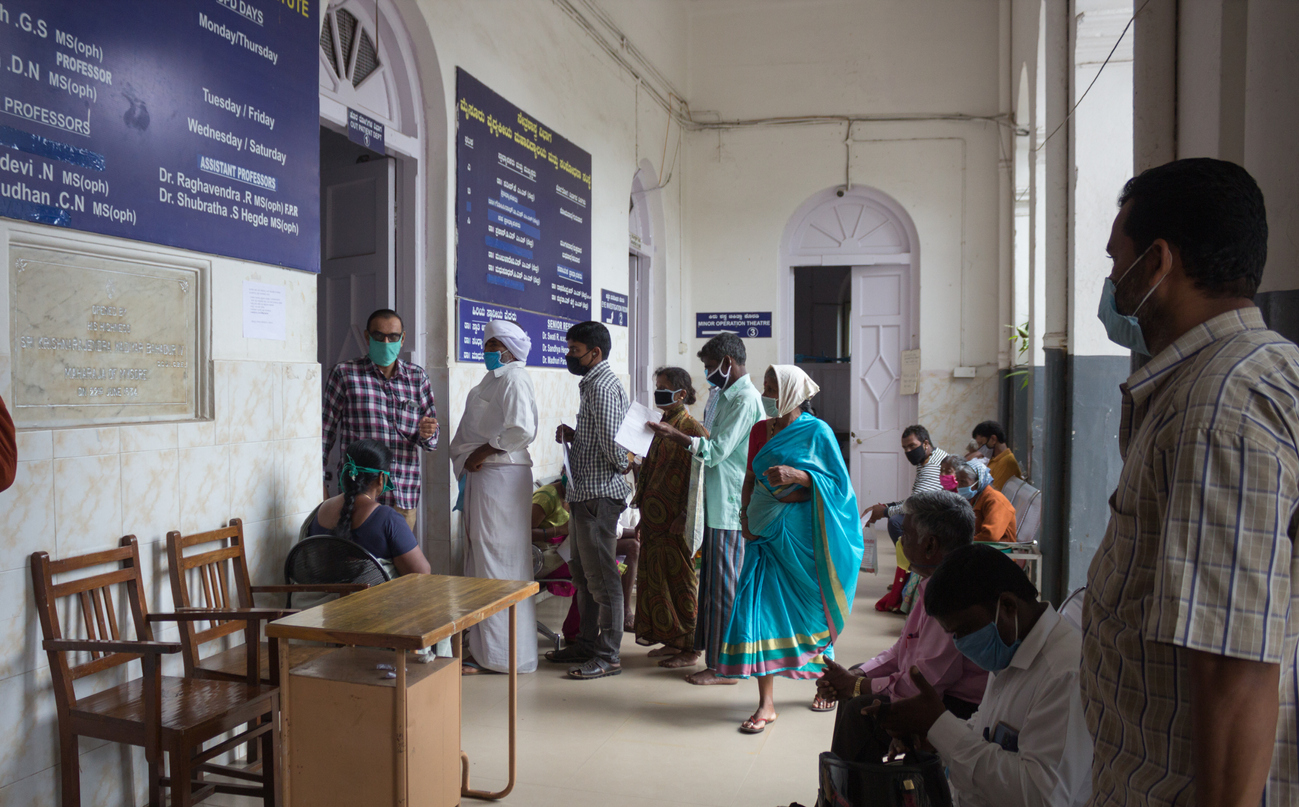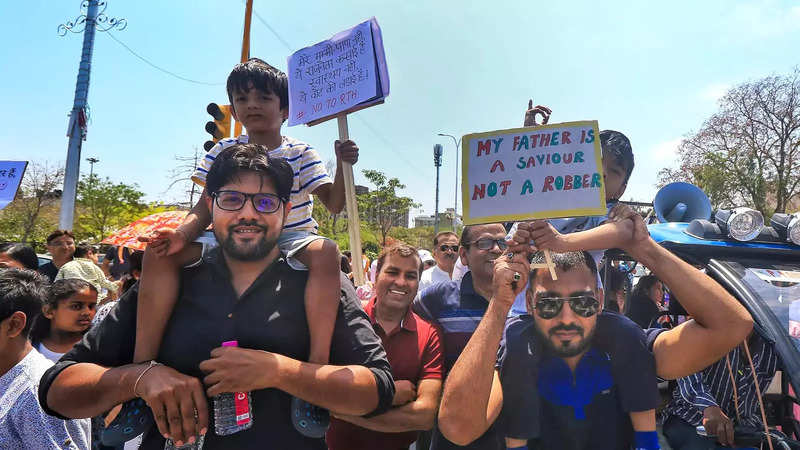
Pricing and Private Hospitals: The Far-Reaching Implications of the Bombay High Court’s Decision in ‘Hospitals’ Association, Nagpur
Part II of a two-part series
In Part I of this analysis, we discussed the constitutional aspects of the court’s ruling in the case of Hospitals’ Association, Nagpur v Government of Maharashtra (‘Hospitals Association’). In this part, we will analyse the following aspects of the judgment – (a) the ruling with respect to the regulation of healthcare charges, under the Epidemic Diseases Act, 1897 (‘EDA’), and the Disaster Management Act, 2005 (’DMA’), and (b) the limited interpretation of the government’s discretionary powers under the EDA and requisitioning powers under the EDA and DMA.
Regulation of healthcare charges under central Public Health Emergency (PHE) legislation
Maharashtra is not the first state to cap healthcare rates for the treatment of Covid-19 patients during this pandemic – several states have done so, however, the Maharashtra government notification challenged in the present case also prescribes the rates chargeable by private hospitals with respect to ‘non-Covid’ patients. As already discussed in Part I, the Notification cites several healthcare and emergency laws as its source of authority; the relevant provisions are as follows:
- Section 2(1) of the EDA empowers the state government (upon being satisfied that the ordinary provisions of the law are inadequate to address an existing or anticipated outbreak) to “…take, or require or empower any person to take, such measures and, by public notice, prescribe such temporary regulations to be observed by the public or by any person or class of persons as it shall deem necessary to prevent the outbreak of such disease or the spread thereof, and may determine in what manner and by whom any expenses incurred (including compensation if any) shall be defrayed.”
- Regulation 10 of the Maharashtra COVID-19 Regulations, 2020 (‘Maharashtra Regulations’) provides a list of measures that may be implemented by the district authorities in a Covid-19 affected area. This list includes restrictions on movement, closure of public places, disease surveillance, isolation of Covid-19 cases and suspected cases, designation of government or private buildings as quarantine facilities, requisitioning of the services of any person, and implementation of “any other measure” as may be directed by the state Public Health Department.
- Section 65(1) of the DMA empowers the national, state, and district authorities to requisition (by a written order) any resources needed for “prompt response”, premises needed or likely to be needed for “rescue operations”, and vehicles needed or likely to be needed for transport of resources to or from disaster affected areas or “transport in connection with rescue, rehabilitation or reconstruction”. Section 65(3) provides that: (a) “resources” includes men and material resources; (b) “services” includes facilities; (c) “premises” means any land, building or part of a building and includes a hut, shed or other structure or any part thereof; (d) “vehicle” means any vehicle used or capable of being used for the purpose of transport, whether propelled by mechanical power or otherwise.
- Section 66(1) of the DMA provides that any requisitioning of premises in terms of Section 65(1) must be accompanied by compensation paid to the occupier / owner in the manner specified in Section 66(1). Section 66(2),similarly, contains a provision for compensation of the owner and / or person in possession of a vehicle requisitioned in terms of Section 65(1).
The judgment in the present case, evaluated whether the Notification correctly applied Section 2 of the EDA inorder to institute price-control measures with respect to treatment rates for patients other than those infected or suspected of being infected with Covid-19, i.e. “non-Covid” patients.In examining the correctness of the application of the provisions of the public health emergency laws (‘PHE’), i.e. the EDA and the DMA in regulating rates for non-Covid patients, the court held that Section 2 of the EDA and Section 65 of the DMA are to be read together as complementary provisions – the requisitioning powers under the DMA working to enable the exercise of state’s powers under the EDA, to take any necessary measures to prevent and manage the spread of the outbreak. While the language of the Notification is ambiguous at best, the court’s interpretation is that its effect would have been to reserve,and to regulatethe rates of80 percent of beds in private healthcare facilities, for Covid-19 patients, as well as prescribing the rates chargeable in the remaining unreserved 20 percent of beds. The court noted that the reservation and regulation of beds for Covid19 patients was not challenged by the petitioners – it was only the fixation of charges for non-Covid patients in the ostensibly unregulated 20 percent component that was opposed in the present petition.
It was inter alia held that – (a) Neither the EDA nor the Maharashtra Regulations include price caps for healthcare for non-Covid patients within the scope of the discretionary “measures” provided for therein, (b) Section 65 of the DMA provides specifically for the power to requisition, and this does not include the power to impose price control measures on non-Covid patients, and (c) the healthcare providers who are subject to the 80 percent reservation of beds under theNotification, are entitled to compensation to that extent, under Section 66 of the DMA.Thisruling raises certain questions as regards the interpretation of the discretionary powers of the state under Section 2 of the EDA, and the understanding of requisitioning powers as well. These are discussed below.
Limitations on the government’s discretionary powers under PHE laws
Discretionary Measures
Examining the employment of Section 2 of the EDA for the purpose of price regulation, the court highlights the language of the section, which provides for defrayment of expenses, including payment of compensation, as well as Section 66 of the DMA which requires the authorities to compensate those whose premises or vehicles are requisitioned under the Act. The rationale employed, is that any interpretation of the PHE laws that allows for price caps on healthcare charges, necessarily implies a corresponding obligation on the state to compensate affected healthcare providers to such extent, and since it cannot have been the intention of the legislature to impose a burden on the state to fund the treatment of patients who are not suffering from the pandemic disease, such an interpretation – as in the present Notification – cannot stand (see paragraphs 23.4 and 24.3 of the judgment).
A couple of issues, however, remain unresolved:
First – the court applies the limits of the language in the regulations in interpreting the state’s powers under Section 2 of the EDA, although the list provided under the Maharashtra Regulations pertains to the powers of the district and local authorities with respect to an affected area, specifically, and not the state government in general; despite this, the language of the regulations appears to have been treated as exhaustive as regards the state’s powers. As mentioned before, Section 2 of the EDA uses unconstrained language to confer a general power on the state government to prevent the commencement or spread of an outbreak, by taking “such measures” as it deems necessary; the provision for temporary regulations follows this provision as an additional measure, and not as a qualifier. It is, therefore, submitted, that the power granted to the state government under the Act ought not to be read as being limited by the description of measures supplied under the regulations.
Second – the judgment notes that since the terms “special measures” and “measures” in Section 2 of the EDA, are not defined therein, they are therefore to be interpreted as defined in the Maharashtra Regulations, framed in terms of Section 2 of the EDA. While it is true that on a plain reading of Regulation 10 of the Maharashtra Regulations, there is no explicit provision for price regulation, the court does not discuss the implications of Regulation 10(viii) thereof, which provides for the public health department of the state to direct the implementation of “any other measure” to contain the outbreak – “measure” in this clause, once again, remains an undefined term. The court does not accept the state’s argument that the regulation of medical facilities for non-Covid patients forms part of the pandemic response “measures” sanctioned by the EDA, however, it does not explicitly reject this, and therefore, the wider implications of this stand are unclear – i.e. does this mean that the scope of the measures that may be taken by the state government under Section 2 of the EDA is restricted to those measures that deal directly with the containment of the outbreak, and excludes ancillary measures?
Requisitioning
Where the law provides for the acquisition or requisition of private property by the government, this may be reasonably presumed to be accompanied by a corresponding obligation to compensate the party whose property has been taken over– such as under the 2013 Land Acquisition Law, or the epidemic response provisions of state laws such as the Goa, Daman and Diu Public Health Act, 1985, the Madhya Pradesh Public Health Act, 1949, and the Bombay Municipal Corporation Act, 1888.In the present case as well, the court, interpreting the measures imposed in the impugned Notification, observed that where private property is requisitioned, there should be corresponding compensation.
What may appear to be an exception to this principlemay be seen in Section 159 of the Representation of the People Act, 1951 (‘RPA’), which provides for the requisitioning of the services of employees of certain authorities, without any corresponding provision for compensation; however, as observed by the Patna High Court in the case of State Bank of India Staff Association v Election Commission of India (‘SBI Case’), government employees called upon to render services under the RPA, do so in their capacity “as State Government or Central Government employees or employees of a local authority, who in any event pay them the pay and allowances payable to them…”; it would “…be unreasonable to think that a private citizen can be called upon to render such services without any compensation. It may be that a self-employed person or an ordinary citizen cannot render such services without prejudice to his own pecuniary and other interest…”.
It is pertinent to note that, while the RPA contains similar requisitioning provisions to those under the DMA (in fact Section 65 of the DMA contains very similar language to Sections 159 and 160 of the RPA, while Section 66 of the former Act mirrors Section 161 of the latter), an important point of departure, iswhere Section 65(1) of the DMA provides for the requisitioning of “any resources with any authority or person”, as opposed to the limitation of this power, under the RPA, to government employees. This key difference in the requisitioning provisions, however, is not reflected in the compensation provisions,i.e. while Section 66 of the DMA provides for compensation for premises and vehicles requisitioned under Section 65(1), as well as the manner of computation thereof, it does notcontain a corresponding provision forresources. Section 2(p) of the DMA defines “resources” as including“manpower, services, materials and provisions”, and Section 65(3) inter alia provides that for the purposes of Section 65 – (a) “resources”, includes “men and material resources”, and (b) “services” includes “facilities”.While the court has directed the government to compensate those private healthcare providerswhose beds have been reserved for Covid-19 patients, under Section 66 of the DMA, it has not explicitly stated whether this compensation is with respect to the private healthcare providers’ premises, services, or resources. Thus, it remains to be answered, whether the reservation of hospital beds amounts to the requisitioning of premises, services,or resources, and consequently, it is also unclear what formula or rationale is to be applied by the state in calculating the amount of compensation payable as aforesaid.
Conclusion
The Hospitals Association case raises questions as regards the scope and limits of the discretionary powers granted to the government under the EDA and DMA respectively. The judgment attempts to delineate the power and corresponding responsibility of the state government under Section 2 of the EDA, read with Sections 65 and 66 of the DMA, with respect to requisitioning and compensation of private healthcare facilities, however, as elucidated above, there remain some unanswered questions, which may come up in future instances of state action under the PHE legislation.
Views expressed are personal.



